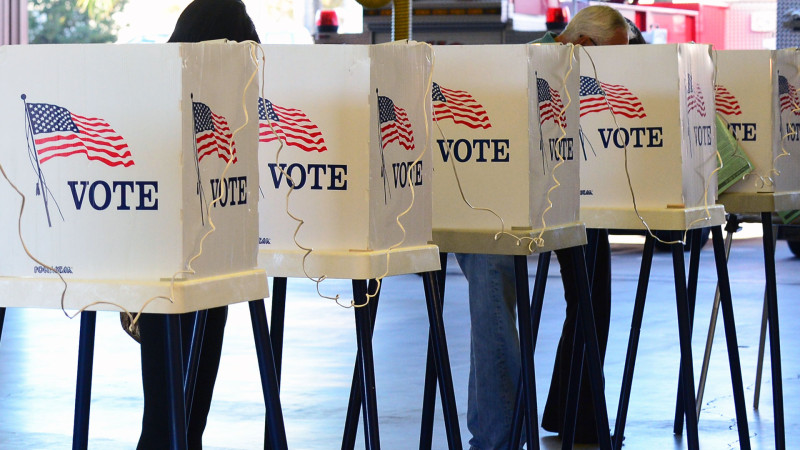For a myriad of reasons, there is very little that's "special" about special elections these days in California. In fact, they've become quite commonplace.
Few Votes Cast, Many Months of Waiting
State election records make the point quite dramatically: 33 special state legislative or congressional elections since 2009 -- more than the entire previous decade, and on par to surpass those held in the 1990s.
That includes the three state Senate special elections being held today: one in Orange County; one in a district encompassing parts of Los Angeles and San Bernardino counties; and one in the East Bay that features a three-way Democratic slugfest.
In some cases, the elections are consolidated -- that is, run concurrently -- with regularly scheduled elections. But in those that are held exclusively to fill a vacancy, turnout is almost always dismal. State elections records show that in only three of the past decade's 49 stand-alone special elections in California did voter turnout reach or surpass 30 percent.
Some elections have been almost completely ignored. A 2013 special election for a vacancy in the state Senate from Los Angeles drew fewer than 24,000 votes -- just 5.5 percent of the registered electorate.
But Hart, the backer of the idea to do away with special elections, says the real dilemma is the lack of representation.
"It takes up to six months to actually fill a vacancy," he said. "And during that period of time, those constituents basically do not have a voice in Sacramento."
Let The Governor Weigh In?
Hart's proposal, which was reflected in 2014's Senate Constitutional Amendment 16, would allow the governor to fill a midterm vacancy in the state Senate or Assembly. The governor already has that power to fill any vacancy that should occur in the U.S. Senate, in a statewide office or on a county board of supervisors.
(Vacancies in the U.S. House of Representatives are required by federal law to be filled by a special election.)
SCA16, which was introduced by former Senate President pro Tem Darrell Steinberg (D-Sacramento), added two additional checks on the power of a governor: It allowed members of the chamber where the vacancy occurs to block the appointment; and it required a governor to appoint someone of the same political party as the former lawmaker.
Neither of those constraints exist in the power over other vacancy appointments. In fact, Gov. Jerry Brown tapped a Democrat for a seat on the Riverside County Board of Supervisors on March 4 to replace a Republican elected to the state Senate.
But the proposal was met with skepticism under the state Capitol dome, especially by those who argued that even tepid voter participation is better than none at all.
"I don't think I would have been appointed to this position, to be frank with you," said Norma Torres, then a state senator and chair of the Senate elections committee, during an April 2014 legislative hearing. Torres won a special Senate election in 2013.
(Last fall, she was elected to Congress.)
Shouldn't The State Foot the Cost?
But if the elections are here to stay, then others say the least the state can do is to pay for them.
"It's quite a burden," said Assemblywoman Ling-Ling Chang (R-Diamond Bar).
Chang has introduced the latest version of a bill that's been floating around Sacramento for several years: to mandate that the state, not counties, pick up the tab for special elections.
That's the way it worked prior to 2007, when state lawmakers started trimming expenses in the wake of tough economic times.
But the elections have kept coming. In fact, a 2014 legislative analysis reports that Los Angeles County spent some $12 million in 2013 just to prepare for, and conduct, special elections.
"It takes away from services they have to offer," said Chang of counties. Her bill, AB971, would transfer the costs to the state for all special elections as of Jan. 1, 2015.
Previous efforts at reimbursing counties have failed, though. And there's no end in sight to the special elections. In fact, two of the candidates in Tuesday's Senate contests are sitting members of the Assembly.
If they win, that would trigger special elections for their current positions -- Assembly seats that would have to be filled, again, by the voters in 2016.
NOTE: This story had been modified to point out that congressional vacancies would not have been filled by appointment under SCA 16 -- only vacancies in the California Legislature.
